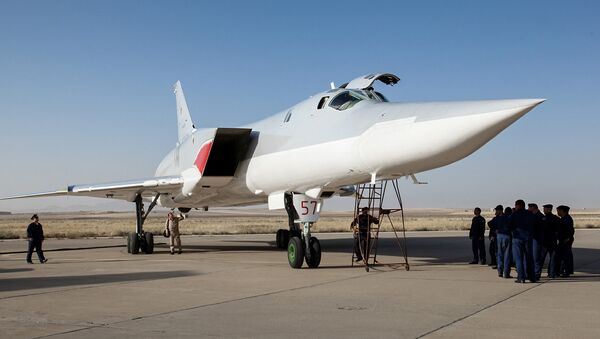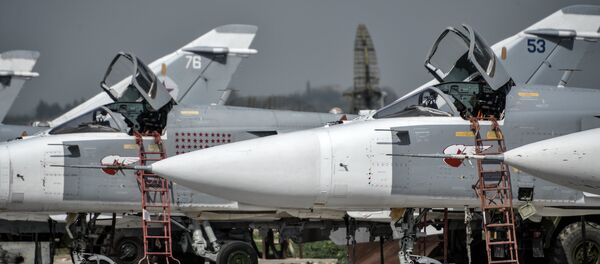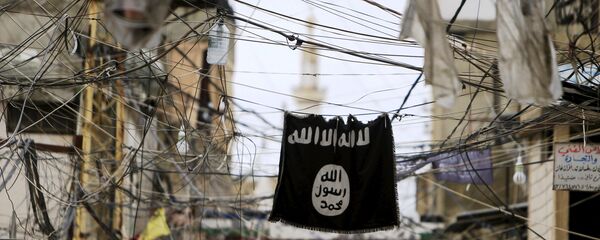Earlier this month, Russia deployed its bombers to the Hamadan airfield in Iran to enhance its offensive capabilities against Daesh, Al-Nusra Front and other radical groups wreaking havoc in Syria. The West was not happy with the news.
For Nasr, the Western response to Moscow's agreement with Tehran points to the true goals that the US and its allies have pursued in the region.
One of the primary aims in Syria from the moment the deadly conflict broke out in early 2011 has been "the systematic dismantling and dismembering of what various people call the regional resistance block or the resistance axis," he said. "Syria is a huge part of it, but Iran is the linchpin that holds it all together."
Iran's direct and open involvement in counterterrorism efforts in Syria "really puts paid to the whole narrative" that the US has been laying out, he added. This is one of the primary reasons why Washington has "never acknowledged the incredible hypocrisy involved" when it invited Saudi Arabia, Qatar and other countries that "have been instrumental in fomenting chaos and destruction in Syria" to join its anti-Daesh coalition.
Nasr mentioned that the deploymnt of Russian aircraft to Hamadan has a geographical and a strategic component. For instance, "it is much easier to strike Aleppo or anywhere else in Syria" from Iran.
This decision, he added, also "solidifies not just an economic alliance between Russia and Iran, but a very important military alliance for both countries."
For Nasr, the fact that Iran an Russia have openly promoted their military and security cooperation is "a direct slap in the face to the US, NATO and all other countries that have insisted that there is no place for Iran when it comes to the resolution of the conflict in Syria, but somehow incredibly there is a place for all those other countries, including Saudi Arabia."
The analyst maintained that all parties to the Syrian conflict will eventually try to find a political solution.
However, certain conditions will need to be met before serious negotiations are launched.
For instance, "the US and Western powers have to realize that 'Assad must go,' their favorite mantra for the past five years, cannot be on the table. They have not won that kind of victory on the ground that enables them to force that down anyone's throat," he said.
The fate of the Syrian president has been a major point of contention. The United States, as well as its allies in Europe and the Middle East have long insisted that Assad must resign before any talks could begin. For its part, Russia has always maintained that no outside power has the right to tell Syrians what their political system should be and who should lead the country.
When Western powers and their allies come to the negotiating table, they are going to come "from a place of some degree of humility and some degree of recognition of the fact that they haven't achieved any of the goals that they set out," Nasr noted.
The analyst also added that the Syrian conflict that has claimed at least 280,000 lives and displaced 11 million people will be brought to an end "based on the timetable and desires of Syria and its people, not those of the US State Department or the Foreign Office."






